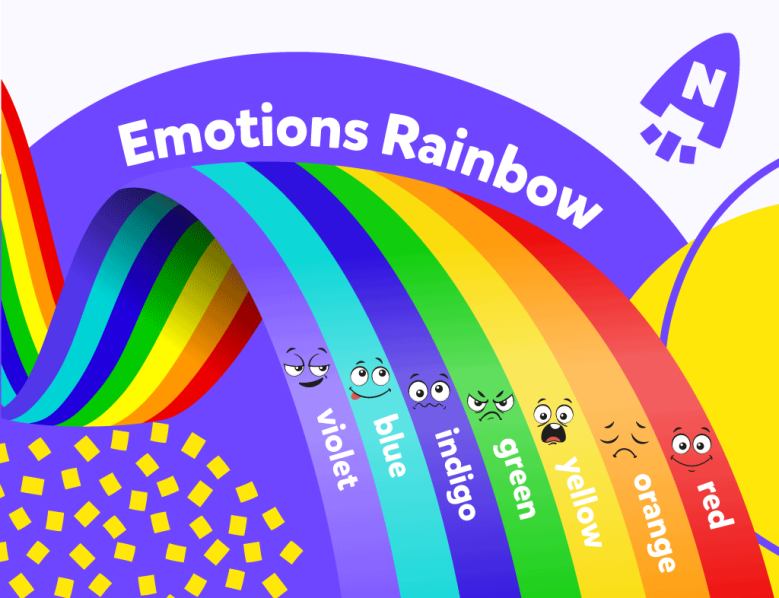- Understanding emotional intelligence in kids
- Choosing effective emotional intelligence games and apps
- Emotional intelligence games for kids
- Emotional intelligence apps for kids
- Benefits of emotional intelligence games and activities for kids
- Other fun emotional intelligence games and apps for kids
Emotional intelligence refers to the ability to recognize, understand, manage, and express emotions effectively. It plays a crucial role in children’s overall development, impacting their social interactions, academic performance, and well-being. Developing emotional intelligence early in life can lead to improved self-awareness, empathy, and emotional resilience.
Games and apps provide an interactive and engaging platform for children to learn and practice emotional intelligence skills. They offer a fun and educational way to enhance emotional recognition, empathy, and self-regulation. By incorporating these tools into children’s routines, parents can support their emotional development while fostering English language skills for ESL students.
In this article, we’d like to highlight the importance of emotional intelligence in children and provide parents with a curated list of the best games and apps that promote emotional intelligence development. By incorporating these resources into their children’s lives, parents can help them cultivate essential emotional skills and improve their English language abilities. Are you ready to explore fascinating emotional intelligence activities for kids with us? Let’s learn more about managing emotions in a fun and stress-free way.
Understanding emotional intelligence in kids
Emotional intelligence consists of several components, including self-awareness, self-regulation, empathy, and social skills.
- Self-awareness involves recognizing and understanding one’s own emotions.
- Self-regulation refers to managing and controlling emotions effectively.
- Empathy is the ability to understand and share the feelings of others.
- Social skills encompass the capacity to navigate social interactions successfully.
Emotional intelligence plays a pivotal role in children’s overall development. It influences their mental health, academic achievement, and relationships with others. Children with well-developed emotional intelligence are more likely to handle conflicts constructively, exhibit empathy towards others, and make responsible decisions. These skills are particularly important for ESL students as they navigate language barriers and cultural differences.
Games for emotional intelligence and apps offer various benefits when it comes to developing emotional intelligence in children. They provide a safe and interactive environment for children to explore and practice emotional skills. Through engaging gameplay and interactive features, these resources can enhance emotional recognition, empathy, self-regulation, and social awareness. Moreover, they can be tailored to suit different age groups, making them an effective tool for children at kindergarten and school age.
Choosing effective emotional intelligence games and apps
When selecting games and apps to promote emotional intelligence, parents should consider factors such as age-appropriateness, educational value, and safety. It’s important to choose resources that align with children’s developmental stage and provide meaningful learning experiences. Additionally, considering the app’s privacy features and online safety measures is essential to ensure a secure digital environment for children.
Research suggests that effective emotional intelligence development involves activities that encourage emotional exploration, problem-solving, and perspective-taking. Games and apps that provide opportunities for children to identify, express, and regulate emotions in various contexts can be highly beneficial. It’s also worth picking resources that foster positive social interactions and encourage empathy toward others.
How to balance entertainment value with educational content in games and apps?
While entertainment value is crucial for engagement, parents should ensure that games and apps also offer educational content related to emotional intelligence. Look for resources that combine enjoyable gameplay with meaningful learning experiences. This balance will keep children motivated while promoting their emotional intelligence and English language skills.
Emotional intelligence games for kids
Emotions Rainbow (toddlers: 1-3 yrs.)
Emotions Rainbow is a game that introduces toddlers to different emotions through colorful visuals and interactive gameplay. They can explore various emotions by matching colors. Together with the child, imagine that the seven strongest emotions have their own colour. Draw your own rainbow assigning an emotion to each colour and label them in English.
Emotions Rainbow helps toddlers learn to identify and associate emotions with visual cues. By interacting with colors associated with different emotions, toddlers develop empathy and understanding of others and their own feelings.
Emotion Charades (preschoolers: 3-5 yrs.)
Emotion Charades is a game where children act out different emotions without using words. The objective is to help preschoolers recognize and express emotions effectively.
By mimicking and interpreting facial expressions and body language associated with different emotions, children develop a better understanding of emotions. This game encourages verbal and non-verbal communication skills, improving children’s emotional vocabulary and expression.
Emotions Playdough Mats (school kids: 6-12 yrs.)
Emotions Playdough Mats is a game where school-age children create playdough figures representing different emotions. They can mold facial expressions and body postures to depict various emotional states.
This game enhances children’s memory and concentration while encouraging them to explore and reflect on different feelings. By creating playdough models, children deepen their understanding of emotions and improve their emotional awareness and practice motor skills.
Emotional intelligence apps for kids

1. Daniel Tiger’s Grr-ific Feelings (preschoolers: 3-5 yrs.)
Daniel Tiger’s Grr-ific Feelings is an early-education social and emotional learning game for preschoolers and kindergarten-age kids. It offers interactive activities such as “The Drawing Easel,” where children can create pictures representing their feelings, and the “Feelings Photo Booth,” where they can identify emotions in characters and snap photos of themselves expressing those emotions.
Through engaging gameplay and relatable characters, Daniel Tiger’s Grr-ific Feelings helps kids identify and regulate their emotions. The activities promote emotional vocabulary, self-expression, and problem-solving, enabling children to navigate their emotional experiences effectively.
2. EMOFACE Play & Learn Emotions (preschoolers: 3-5 yrs.)
EMOFACE Play & Learn Emotions is a safe and educational application designed to teach emotions through the use of 3D emotional avatars. It allows children to explore the six basic emotions — joy, anger, fear, sadness, surprise, and disgust—by analyzing facial expressions and social contexts. The app is free to download and provides a comprehensive emotional learning experience.
EMOFACE Play & Learn Emotions introduces children to relaxation techniques and emotional control strategies. Through the exploration of facial expressions and contextual clues, children learn to manage their own emotions effectively, promoting emotional resilience and well-being.
3. The Mood Meter (school kids: 6-12 yrs.)
The Mood Meter app helps users manage, track, and control their moods and emotions. It is designed to boost emotional intelligence, self-awareness, and lifestyle control. By checking in throughout the day and monitoring mood fluctuations, users gain a better understanding of their emotions and develop strategies for emotional self-regulation.
The Mood Meter app encourages self-reflection by providing users with insights into their mood patterns and stability. By tracking their emotions and learning to manage them effectively, school-age children can develop emotional resilience, improve their communication skills, and foster personal growth.
Benefits of emotional intelligence games and activities for kids
Using interactive games, apps, and various activities to boost kids’ emotional intelligence it’s a great way of both having fun and learning about others’ feelings and emotions. Here are reasons, why games to improve emotional intelligence are beneficial to children:
- Emotional intelligence games and activities help children develop self-awareness by encouraging them to identify and understand their own emotions. This self-awareness leads to better emotional regulation and control.
- These games promote empathy and perspective-taking, helping children understand and relate to the emotions and experiences of others. This enhances their social skills and fosters positive relationships with peers and adults.
- Emotional intelligence games and activities improve children’s communication skills as they learn to express their emotions effectively and understand non-verbal cues from others. This can be particularly beneficial for ESL students, as it helps them practice and strengthen their English language skills.
- Engaging in emotional intelligence games and activities enhances children’s problem-solving abilities. By recognizing and understanding emotions, they can better navigate conflicts, make responsible decisions, and find appropriate solutions to challenges they encounter.
- Emotional intelligence games and activities contribute to children’s overall well-being and mental health. By learning to manage and regulate their emotions, children experience reduced stress and anxiety, leading to improved emotional resilience and overall happiness.
However, while games and apps can be powerful tools, it’s important to strike a balance between digital and real-world experiences. Encourage children to engage in face-to-face interactions, outdoor activities, and creative play, complementing their use of games and apps. This balance ensures a holistic approach to emotional intelligence development.
Should parents be involved in the process of teaching emotional intelligence via games?
Parental involvement and supervision are vital in maximizing the benefits of emotional intelligence games and apps. Engage with your child during gameplay, discuss emotions, and reinforce learning points. Regularly review and assess the content of games and apps to ensure they align with your child’s developmental needs and values.
Monitor your child’s progress and assess the impact of games and apps on their emotional intelligence development. Observe changes in their emotional vocabulary, social interactions, and self-regulation skills. Evaluate the effectiveness of the resources you choose and make adjustments when necessary.
Other fun emotional intelligence games and apps for kids
Apart from the highlighted games and apps, there are numerous other resources available for fostering emotional intelligence in children. Explore Novakid’s YouTube channel to provide children with a wide range of engaging videos for emotional skill development and English learning opportunities.
Supplementing emotional intelligence funny games with books is an excellent way to deepen children’s understanding of emotional intelligence. Look for age-appropriate books that explore emotions, empathy, and social skills. Some recommended titles include “The Color Monster” by Anna Llenas and “Today I Feel Silly” by Jamie Lee Curtis.
Tu sum up, emotional intelligence is a fundamental aspect of children’s development, impacting their social, academic, and emotional well-being. Cultivating emotional intelligence equips children with essential skills to navigate their emotions, understand others, and build meaningful relationships.
By incorporating emotional awareness games and emotional intelligence games online for kids of different ages, parents can support their emotional development and enhance their English language skills, especially for ESL students. Make a good use of our top 6 apps and games on emotional intelligence and offer your kids a fun and educational way to strengthen their emotional recognition, empathy, self-regulation, and social skills. Embracing these tools can contribute to children’s overall growth, well-being, and future success.
Let us know in the comments section below, what is your opinion on using games to teach emotional intelligence to kids.












































